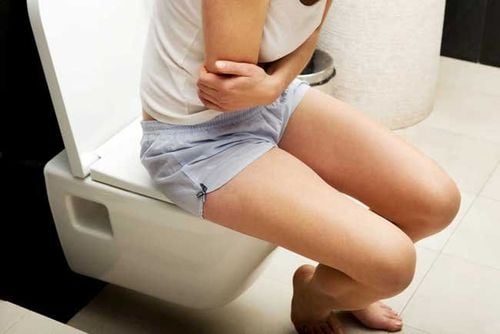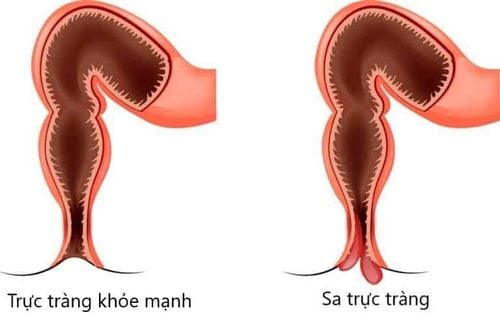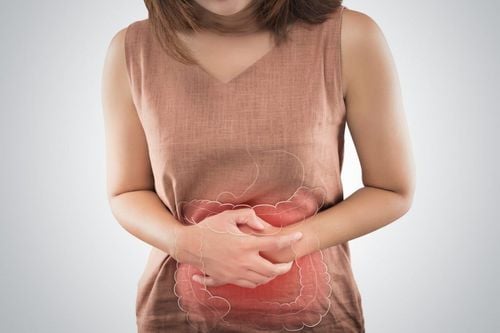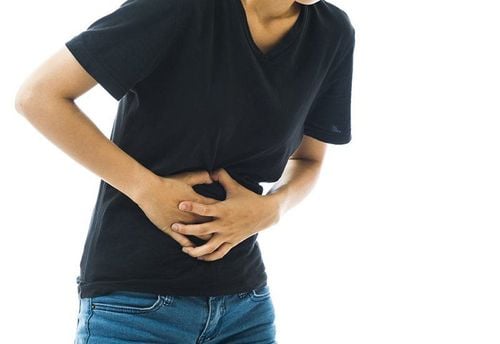This is an automatically translated article.
Incontinent defecation, although not dangerous to the patient, causes a lot of trouble for the patient. Not only causing discomfort, itching, inflammation, and pain in the anal rectal area for the patient, this condition is also the cause of the patient's loss of concentration at work, low self-esteem, and possibly even low self-esteem. lead to major depression. The following article will help us learn more about postpartum incontinence.
1. What is fecal incontinence?
The condition that stools continuously leak out from the rectum when the patient is working, playing, or resting without any or very little feeling of urgency is called fecal incontinence.
The amount of feces out is very small, only dirtying underwear is mainly if it is mild. The large number of stools will make the patient really uncomfortable and miserable, if the stool is not completely controlled. Incontinence can be accompanied by a number of other gastrointestinal diseases such as diarrhea, constipation, bloating, flatulence, etc. Women have a higher incidence than men.

Đại tiện không tự chủ có thể kèm triệu chứng chướng bụng, đầy hơi
2. Some causes of bowel incontinence
There are many causes of bowel incontinence . The most common cause is constipation. The amount of dry hard stool gradually accumulates in the large intestine and rectum for patients with constipation. When having a bowel movement, the anal sphincter becomes more stretched because the stool is larger than normal. Repeatedly stretched anal sphincter will lead to weakened tone if constipation persists for a long time.
Loose stools continue to go uncontrollably. In addition to the cause of the weak and stretched sphincter, prolonged constipation also damages the rectal-anal nerve, reducing or losing the sensitivity of the rectum to the volume of stool, causing incontinence.
Another common cause of fecal incontinence is diarrhea, because loose stools are difficult to retain in the rectum. Due to the loss of potassium, prolonged diarrhea can also decrease rectal and anal sphincter tone. In keeping stool in the rectum, the anal sphincter plays a very important role. Feces come out when this sphincter is damaged, not strong enough to hold stool. Injury to the anal sphincter is common in postpartum women, especially when the baby is large or requires a procedure such as forceps or an episiotomy.
Damage to nerve fibers that are sensitive to certain stool volumes is another cause of fecal incontinence. This damage can be caused by childbirth, a spinal cord injury, or a number of other causes. Incontinence can also be caused by the narrowing of the rectum and its ability to stretch.

Táo bón là nguyên nhân chủ yếu gây đại tiện không tự chủ
Incontinence can also be a sequel of some surgery in the anus, such as hemorrhoidectomy... When it invades deep through the muscle layer, rectal cancer can hurt rectal nerve fibers and cause fecal incontinence.
Rectal prolapse, rectal hernia into the vagina in women, large hemorrhoids are also the cause of bowel incontinence, preventing the opening and closing of the anal sphincter...
3. Is bowel incontinence after birth common?
Postpartum fecal incontinence is quite common. Patients have difficulty controlling gas or bowel movements after childbirth, also known as anal incontinence. Researchers estimate that between 5 and 25% of postpartum women experience fecal incontinence.
In addition, fecal incontinence can also result from damage to the pelvic floor muscles or nerves (or both) during childbirth or from a tear or other trauma affecting anal contractions. For example, you can seriously injure your vagina during an episiotomy that affects your anal spasms.
4. How long will postpartum incontinence last?
Most bowel incontinence will last within a few months of giving birth. Others may persist uncontrollably for years to come.

Đại tiện không tự chủ sau sinh có thể kéo dài từ vài tháng đến vài năm
5. How to Treat Postpartum Incontinence
Incontinence can be uncomfortable for the patient, so you need to talk to a specialist to get the right treatment.
Research shows that exercising the muscles that support the bladder, uterus, and intestines (pelvic floor muscles) can prevent or even reverse fecal incontinence. Therefore, experts recommend doing Kegel exercises regularly to strengthen the pelvic floor muscles. (Kegels can also be effective if you have urinary incontinence.)
Do some Kegels during your test so the pros can be sure you're doing them correctly.
Should change the diet (eg, eat laxative foods to prevent constipation), maintain a reasonable diet, eat small meals, eat enough fiber, drink a lot of water, exercise the habit of defecating at a certain time, keep the anal area, rectum always dry with talcum powder, clean hygiene, wear soft cotton underwear,...for people with defecation incontinence.
Periodic health check-ups help to detect diseases early, so that there are treatment plans for optimal results. Currently, Vinmec International General Hospital has general health checkup packages suitable for each age, gender and individual needs of customers with a reasonable price policy.
Results of the patient's examination will be returned to the home. After receiving the results of the general health examination, if you detect diseases that require intensive examination and treatment, you can use services from other specialties at the Hospital with quality treatment and services. outstanding customer service.
Please dial HOTLINE for more information or register for an appointment HERE. Download MyVinmec app to make appointments faster and to manage your bookings easily.
Reference source: babycenter.com













